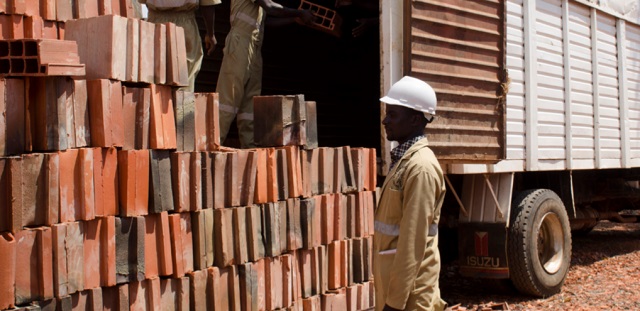
Company executives explain cause of Shs88million loss
Kampala, Uganda | JULIUS BUSINGE | Uganda Clays Limited, a clay building materials manufacturer has recorded Shs88million loss for the year 2019 as opposed to the net profit of Shs1.9bn in 2018.
According to the company’s financial statements released on July 17, total revenue for the period was Shs30.7 billion and was largely the same as the prior year 2018 which was Shs30.0 billion.
Officials said there was a reduction in the gross margin of 4% compared to the prior year (2019: 31%, 2018: 35%).
Martin Kasekende, the chairman board of directors and Joseph Tukuratiire, a director said, the reduction in the growth margin was a result of machine down time at the Kamonkoli plant during the annual maintenance shutdown, in addition to a reduction in the firing capacity occasioned by scarcity of coffee husks which are the main fuel source.
Meanwhile, there was a 29% increase in the total overheads. This is majorly attributed to professional and consultancy costs incurred in the period and increased distribution costs.
However, there was notable improvement realised in the ICT environment to improve business processes and controls. Additionally, a provision was made in the financial statements in compliance with accounting standards of IFRS 9, officials said.
No dividends
In the statement, officials said, the board of directors does not recommend a dividend payment for the year ended December 2019. Further explanations to shareholders will be given at the Annual General Meeting for the year 2019 which shall be held on Sept.25 at 2:30 pm.
This performance comes at a time as the company continues to grapple with management challenges.
In March, the board sacked the managing director George Inholo and other top managers over failure to deliver and turnaround the company.
“We have stalled in growth and there is a lot of competition as we speak. We must up our game and get a team that can challenge what is going on and improve on shareholder value,” Kasekende told a local daily newspaper earlier in March. Inholo had served as MD for a period of six years.
At the beginning of the year, company officials had shared a growth strategy rotating around implementing innovations for putting new tiles on the market.
The company was also looking for alternative sources of energy to deal with the unpredictable prices of coffee husks.
The good thing, officials said, the company has enough clay reserves for production of various constriction materials.
For the Kajjansi factory alone, for instance, officials said, the company has a reserve of up to 15 years and are still exploring other areas.
On the other hand, Kamonkoli plant in Mbale has a clay reserve that can last 70 years.
Officials said, the company’s human resource function has greatly improved and that it required all staff to hit their targets.
Beyond Uganda’s market, UCL officials insisted that the plan to reopen their outlet in South Sudan was still on the table albeit the political instability that have engulfed Africa’s newest nation and disruptions brought about by COVID-19.
On debt, officials said the company did not have any commercial debt with banks except the National Social Security Fund (NSSF) where it is supposed to clear a Shs23bn [debt]. The negotiations in relation to retiring this old debt has been planned before end of this year.
Historical facts (source; USE)
- Uganda Clays Ltd (UCL) was listed on the USE on the 18th of January 2000 becoming the first equity to be listed on the Exchange.
- UCL shares were 15% oversubscribed representing the market’s readiness for more trading. As of the 12th of September, 2002, UCL had a capitalization of Ushs.2.3 billion on the USE
- UCL was incorporated in 1950 as a private limited company by the Georgiadis Greek Cypriot family
- In 1956 all ordinary shares in the company were acquired by Westomat- a company based in Switzerland
- In the period following until 1996, Westomat transferred ownership to NHCC, White Tower Corporation and Charles Schaefer in a series of actions.
- In 1998 the Government Of Uganda decided to sell to the general public its holding of 374,995 ordinary shares held by NHCC, together with 5 shares held by nominees of NHCC-UCL had been given Class 4 status meaning that government was to fully divest its interest in the company.
- In 1999 UCL was constituted into a public limited liability company and its Memorandum and Articles of Association were amended to reflect the change.
- This was followed by the Listing of the company on the-by then newly formed-USE within the provisions of the laid down by the Capital Markets Authority Statute, 1996.
****
 The Independent Uganda: You get the Truth we Pay the Price
The Independent Uganda: You get the Truth we Pay the Price



